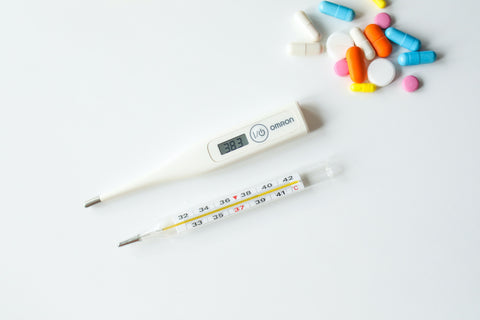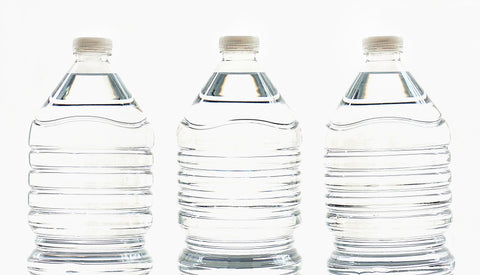Dehydration is an abnormal reduction in the water levels in the body. Dehydration doesn’t just hit when you are excessively thirsty, or in only hot climatic conditions. Dehydration can also hit you as easily as when going about your normal day to day activities. In this blog, we’ll shed light on dehydration signs, symptoms, effects on your body, and ways to prevent dehydration.
What are the symptoms of dehydration?
The symptoms that we experience when dehydrated can vary from person to person but mostly include some generic ones like headache, dry skin, darker urine, and dry mouth & tongue. Some other common signs and symptoms can be:
- Increased thirst
- Fatigue
- Sleepiness
- Dry or flaky scalp and skin
- Dizziness
- Muscle cramping
- Dry or chapped lips
Who Is at Risk of Dehydration?
No one is immune to dehydration, but it sure is preventable. Dehydration can affect anybody, no matter their age, even if they're completely healthy. However, the most care should be given to kids, infants and old age people when dehydrated, as their health can worsen more rapidly as a result.
For people with undiagnosed diabetes, or those taking blood pressure medications and diuretics like tea, coffee, colas, alcohol etc, dehydration can develop very easily.
Hydrating regularly will not only prevent the risk of dehydration, but will also help you feel better in general - improving your mood, boosting brain function, and preventing fatigue.
We have some simple ways for you to combat dehydration and stay hydrated throughout the day:
1. Keep your water bottle close to you, always!
Keeping the water bottle/ sipper close to you, be it on your work desk, in your car, in each room of the house or in your bag, will act as a nudge to your mind to sip on water. Psychologically, this will be a visible reminder of thirst.
2. Put up a sticky note/reminder in your calendar to nudge yourself to drink water more often
This again will serve as a helpful tool, as sometimes due to busy schedules and focused work culture, one can forget to drink water for a long period of time unless the body gets thirst signals like dry tongue, or dry mouth. Regularising water intake will make sure your body clock also adjusts to the habit and hence forms a mental reminder of its own to drink water in those intervals.
3. Eat water-rich foods: Certain foods have a high water content, which can help you stay hydrated. Examples include watermelon, cucumbers, strawberries, and celery.
4. Avoid sugary and caffeinated beverages: Sugary and caffeinated drinks can increase your risk of dehydration, so it's best to limit your consumption of these beverages. Instead, opt for zero sugar drinks, or other hydrating fluids.
5. Drink more during physical activity: When you exercise or engage in physical activity, you lose more fluids through sweat. To prevent dehydration, make sure to drink enough fluids before, during, and after exercise.
6. Be mindful of the weather: In hot weather or high altitude, you may need to increase your fluid intake to avoid dehydration. Be sure to drink plenty of water with electrolytes and avoid alcohol and caffeine during these conditions.
7. Pay attention to your body: If you're feeling thirsty, it's a sign that your body needs more fluids. Other signs of dehydration include dark-coloured urine, dry mouth, and fatigue. If you experience any of these symptoms, drink fluids immediately.
8. Get drinks for dehydration: hydration drinks/ powdered electrolytes are the fastest mode of dehydration relief. Get your hands on Nudge Hydration Enhancers to enjoy long lasting hydration even in the worst of summers!




Comments (0)
There are no comments for this article. Be the first one to leave a message!